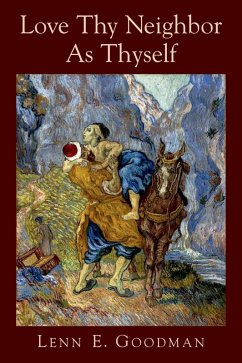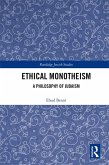In this book, Lenn E. Goodman writes about the commandment to "love thy neighbor as thyself" from the standpoint of Judaism, a topic and perspective that have not often been joined before. Goodman addresses two big questions: What does that command ask of us? and what is its basis? Drawing extensively on Jewish sources, both biblical and rabbinic, he fleshes out the cultural context and historical shape taken on by this Levitical commandment. In so doing, he restores the richness of its material content to this core articulation of our moral obligations, which often threatens to sink into vacuity as a mere nostrum or rhetorical formula. Goodman argues against the notion that we have this obligation simply because God demands it -- a position that too readily makes ethics seem arbitrary, relativistic, dogmatic, authoritarian, contingent or just unpalatable. Rather he proposes that we learn much about how we ought to think about God from what we know about morals. He shows that natural reasoning and appeals to scripture, tradition, and revelation reinforce one another in ethical deliberation. For Goodman, ethics and theology are not worlds apart connected only by a kind of narrow one-way passage; the two realms of discourse can and should inform each other. Engaging the philosophers, including Aristotle, Spinoza, and Kant, and assembling three-thousand years worth of Jewish textual masterpieces, Goodman skillfully weaves his Gifford Lectures, which he delivered in 2005, into an indispensable work.
Dieser Download kann aus rechtlichen Gründen nur mit Rechnungsadresse in A, B, BG, CY, CZ, D, DK, EW, E, FIN, F, GR, HR, H, IRL, I, LT, L, LR, M, NL, PL, P, R, S, SLO, SK ausgeliefert werden.









